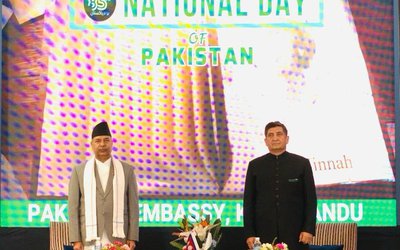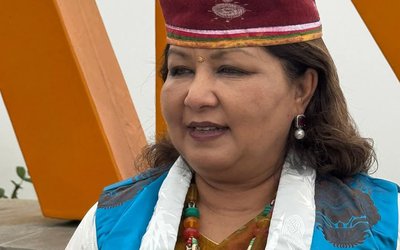
The Supreme Court also directed the government to not allow the private schools to increase their prices for the next three years.
These are just a few examples of the government intervention in the operation of private schools. Although private schools of the country provide education to around 30 percent of the school going children, the government is yet to recognize the efforts made by the private sector. In fact, the government is only limiting the operations of private schools by bringing unnecessary rules and regulations.
There are reportedly around 2,500 schools in the Kathmandu Valley of which some 70 percent of them are private. The whole lower level education of the valley is nearly provided by the private sector.
The government has also time and again called for the help from the private sector to increase the quality of public schools and has stated the importance of private schools, but their actions lead to opposite directions.
Rather than making the public schools more competitive, from the recent scenario, it looks like the government is trying to expand the reach of public schools by hindering the developments of private schools.
“Just because of the directives from the Supreme Court, it is not possible to operate at the same costs. If the government wants us not to increase fees, then the state should take the responsibility of the market inflation, increased salaries of the teachers, increasing rents and operating costs. We will increase fees up to 25 percent,” said Nabaraj Mahat, Lalitpur chief of Private and Boarding School Organization Nepal (PABSON).
Nobody can undermine the importance of public schools, but the government schools of the country are not just up to the standards. Anybody, provided the resources to choose from, will choose the private schools over the public schools.
In the last few years, some two dozen government owned schools were closed due to low enrollments.
The difference is also clearly visible in the quality of education, students who have studied in the public schools often face difficulties while competing with students who came out private schools and in majority of cases come out second best.
No doubt, there are few private schools which have underperformed, but to keep the whole private school sector at the radar suggests government’s lack of respect towards private schools and their contributions.
“Due to increase in students´ enrollment in private institutions, the district education offices have decided to reject registration of new schools in the new academic session,” said Baikuntha Aryal, the Kathmandu District Education Officer to Republica.
Rather than investing time and efforts in restricting the actions of private schools, government should utilize those efforts in making public schools more competitive.

Debesh Adhikari
Adhikari is a computer science student and writes on various contemporary issues.
- The UK Expressed Deep Concerned About Tensions in Nepal
- Mar 09, 2017
- Development Partners and Ministry of Education Agree to drive quality education
- Sep 28, 2016
- END HUNGERNepal plans to end hunger by 2025
- Mar 14, 2016
- UK Hopes For Inclusive Resolution For Nepal
- Sep 17, 2015
- Micromax Launches Bolt D320 For Nepali Market
- Aug 07, 2015














